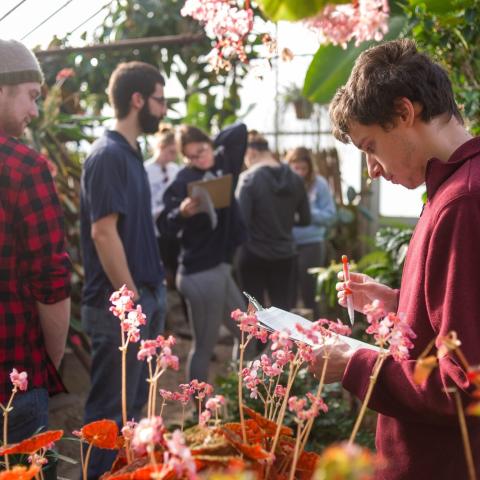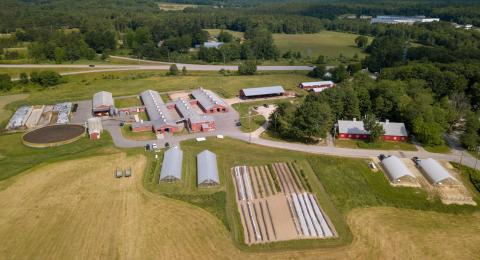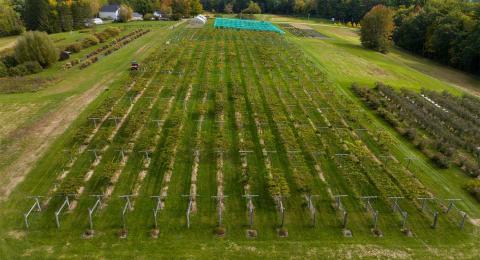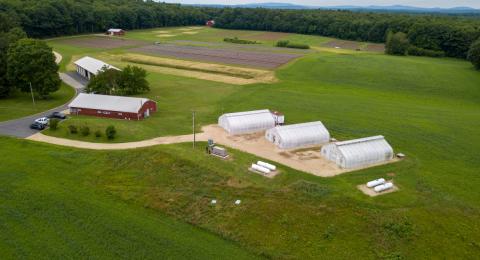The New Hampshire Agricultural Experiment Station is the home of several campus-area farm and greenhouse facilities. These are not funded from the UNH general budget, but rather, through the separate NHAES federal and state budget lines. Many activities conducted at these locations support the core institutional mission and goals.
Our field facilities include the two horticulture and agronomy farms, a typical New England Holstein dairy, a diversified organic dairy farm, and the research/teaching greenhouses. The several other field sites adjacent to or near the UNH campus are used independently for research, teaching, and engagement while directly contributing to the farm operations by producing required dairy and equine feed. The majority of our forage fields are maintained in certified organic status, and we use manure and compost generated from our dairy and equine facilities to maintain their soil fertility and tilth.
Provision of our research farms and greenhouses provides added value through outstanding opportunities for hands-on teaching and experiential learning by graduate and undergraduate students within multiple UNH academic programs, and formal and informal outreach and engagement with stakeholders.
Researchers interested in conducting experiments at these facilities can visit each facility's page and complete the online facilities use request form.
For more information about how the NHAES manages its farm fields, please visit our Farm Field Management Overview.








